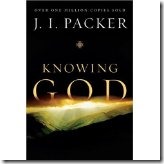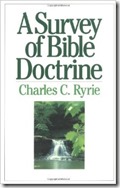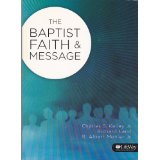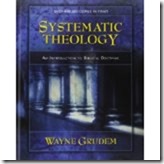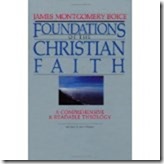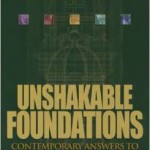Faith will be challenged—not simply to give it up, but to compromise what we believe.
We must learn to define and defend our faith—to have an answer for the people who question our faith and to have a clear definition of the core things that make up our faith.
Recommended Listening:
Church History by Tommy Nelson (13 hrs)
Required Reading:
Recommended Reading:
Introduction:
Defining Terms is important. Without it, I could call myself anything…
For example: I could call myself a Jedi, but…
- · I would need a lightsaber (but not red)
- · I would need a cloak
- · I would need to be able to use the force
- · And I would need to have allegiance to the Jedi council and light side, otherwise I would be a sith
- · And I must be single…FAIL!
You could call yourself a hipster…but are you really? How would you argue? What’s the standard? See the Test, here.
Definition of terms that’s a little more important to current dialog: what criteria define a human being???
- · Appearance? (what about embryos?)
- · Independence? (how old is a person before that happens?)
- · Intelligence? (what about disabled or elderly or injured?)
- · The ability to reason or love? (what about animals who can do many of those things?)
- · Genetics?
- · Abortionist Definition:
- o consciousness and the ability to feel pain;
- o reasoning;
- o a self-motivated activity;
- o ability to communicate; and
- o the existence of a self-concept (for example, individual, racial) and self-consciousness
- · Christian Definition: those made in God’s image and their offspring, no matter how early in their development.
We need to define terms so that we can believe with confidence and communicate our beliefs clearly. We need specific, detailed answers to questions on every subject, because life and the world constantly come to us with questions like:
- What defines a human being? (which is really the question: Is abortion right?)
- What does the Holy Spirit do?
- What happens when I keep repeating a sin? Can I lose my salvation in Jesus?
We are called to study the Bible, not simply to read it.
We learn a lot by looking at everything the Bible has to say about specific subjects, like angels, for instance. The Bible has a lot to say—and often we need to take all the comments on a certain subject and look at them together to get a better picture of how God has designed our world. When we systematize the Bible’s comments in order to know more, we are doing Systematic Theology. Systematic Theology helps us formulate summary statements on issues called Doctrinal Statements. Because we trust the Bible, we use these doctrinal summaries to describe and defend our faith from compromise.
Key Doctrinal Moments in Scripture:
The Name of God given to Moses: Yahweh
14 God replied to Moses, “I AM WHO I AM. This is what you are to say to the Israelites: I AM has sent me to you.” 15 God also said to Moses, “Say this to the Israelites: Yahweh, the God of your fathers, the God of Abraham, the God of Isaac, and the God of Jacob, has sent me to you. This is My name forever; this is how I am to be remembered in every generation. (Exod 3:14-15, HCSB)
THE SHEMA is the central prayer in the Jewish prayerbook (Siddur) and is often the first section of Scripture that a Jewish child learns. During its recitation in the synagogue, Orthodox Jews pronounce each word very carefully and cover their eyes with their right hand. Many Jews recite the Shema at least twice daily: once in the morning and once in the evening:
4 “Listen, Israel: The LORD our God, the LORD is One. 5 Love the LORD your God with all your heart, with all your soul, and with all your strength. 6 These words that I am giving you today are to be in your heart. 7 Repeat them to your children. Talk about them when you sit in your house and when you walk along the road, when you lie down and when you get up. 8 Bind them as a sign on your hand and let them be a symbol on your forehead. 9 Write them on the doorposts of your house and on your gates. (Deut 6:4-9, HCSB)
13 “If you carefully obey my commands I am giving you today, to love the LORD your God and worship Him with all your heart and all your soul, 14 I will provide rain for your land in the proper time, the autumn and spring rains, and you will harvest your grain, new wine, and oil. 15 I will provide grass in your fields for your livestock. You will eat and be satisfied. 16 Be careful that you are not enticed to turn aside, worship, and bow down to other gods. 17 Then the LORD’s anger will burn against you. He will close the sky, and there will be no rain; the land will not yield its produce, and you will perish quickly from the good land the LORD is giving you. 18 “Imprint these words of mine on your hearts and minds, bind them as a sign on your hands, and let them be a symbol on your foreheads. 19 Teach them to your children, talking about them when you sit in your house and when you walk along the road, when you lie down and when you get up. 20 Write them on the doorposts of your house and on your gates, 21 so that as long as the heavens are above the earth, your days and those of your children may be many in the land the LORD swore to give your fathers. (Deut 11:13-21, HCSB)
37 The LORD said to Moses, 38 “Speak to the Israelites and tell them that throughout their generations they are to make tassels for the corners of their garments, and put a blue cord on the tassel at each corner. 39 These will serve as tassels for you to look at, so that you may remember all the LORD’s commands and obey them and not become unfaithful by following your own heart and your own eyes. 40 This way you will remember and obey all My commands and be holy to your God. 41 I am Yahweh your God who brought you out of the land of Egypt to be your God; I am Yahweh your God.” (Num 15:37-41, HCSB)
The Shema in Jesus Ministry:
35 And one of them, an expert in the law, asked a question to test Him: 36 “Teacher, which command in the law is the greatest? ” 37 He said to him, “Love the Lord your God with all your heart, with all your soul, and with all your mind. 38 This is the greatest and most important command. 39 The second is like it: Love your neighbor as yourself. 40 All the Law and the Prophets depend on these two commands.” (Matt 22:35-40, HCSB)
Paul’s Summary of the most important belief: The Gospel
3 For I passed on to you as most important what I also received: that Christ died for our sins according to the Scriptures, 4 that He was buried, that He was raised on the third day according to the Scriptures, 5 and that He appeared to Cephas, then to the Twelve. 6 Then He appeared to over 500 brothers at one time; most of them are still alive, but some have fallen asleep. 7 Then He appeared to James, then to all the apostles. 8 Last of all, as to one abnormally born, He also appeared to me. (1Cor 15:3-8, HCSB)
An Early Doctrinal Statement called the Nicene Creed:
This creed was formulated by a council of Christians in the early church to clearly define key aspects of the faith that were under attack at the time. As you read it, you’ll see that they want the world to know that they believe in: (1) one God, manifested in three persons: Father, Son and Holy Spirit, (2) Jesus was God, but not the same as the Father, (3) Jesus died and was resurrected AND is coming again, etc.
We believe in one God,
the Father, the Almighty,
maker of heaven and earth,
of all that is, seen and unseen.
We believe in one Lord, Jesus Christ,
the only Son of God,
eternally begotten of the Father,
God from God, Light from Light,
true God from true God,
begotten, not made,
of one Being with the Father.
Through him all things were made.
For us and for our salvation
he came down from heaven:
by the power of the Holy Spirit
he became incarnate from the Virgin Mary,
and was made man.
For our sake he was crucified under Pontius Pilate;
he suffered death and was buried.
On the third day he rose again
in accordance with the Scriptures;
he ascended into heaven
and is seated at the right hand of the Father.
He will come again in glory to judge the living and the dead,
and his kingdom will have no end.
We believe in the Holy Spirit, the Lord, the giver of life,
who proceeds from the Father and the Son.
With the Father and the Son he is worshiped and glorified.
He has spoken through the Prophets.
We believe in one holy catholic and apostolic Church.
We acknowledge one baptism for the forgiveness of sins.
We look for the resurrection of the dead,
and the life of the world to come. Amen.
Doctrinal Statements in Worship:
There’s a TON of writing, debate and information on Theology and Doctrine. There have been a ton of attacks on specific beliefs throughout the 2,000 year history of Christianity, so there’s a lot of doctrinal statements. We are only going to dip into the shallow end of the pond this month. I’ll suggest many books to those who wish to see other issues that are important and have been debated in the past. But the goal of this month is for us to understand what arguments are being made against our faith currently and how to begin to research and respond to them in a way that strengthens your faith and potentially changes the heart and mind of your opponents.
This month we will look at the four most debated issues of our day so that we can understand (1) what the Bible says about these subjects, (2) what the world seems to suggest the Bible is wrong about them, and (3) what compromising our belief on a particular subject might do to our faith.
Week #1 – Is the Bible Trustworthy?
Week #2 – What about other religions/ways to God?
Week #3 – What is salvation, really? What did Jesus accomplish?
Week #4 – What’s with all the different types of Churches?
Doctrine is the key to long term life change:
When we look and learn through the lens of doctrine, we put solid foundations behind our practice as Christians. The “to do’s” of Christianity are fueled by a deeper understanding of the “why” behind each one. We see this clearly in the ministry we have through Paul’s writings. Each of his letters tends to begin with a long discussion of the doctrine/theological reality (the why) and end with the “to do” list that comes out of that understanding. This is most obvious in Romans, Ephesians, and Colossians where the letter almost seems to be written in two distinct parts.
12 Although by this time you ought to be teachers, you need someone to teach you the basic principles of God’s revelation again. You need milk, not solid food. 13 Now everyone who lives on milk is inexperienced with the message about righteousness, because he is an infant. 14 But solid food is for the mature — for those whose senses have been trained to distinguish between good and evil. (Heb 5:12-14, HCSB)
Additional Topics that Could be Explored:
- · Scripture – Bibliology
- · God the Father (What is God like?)
- · God the Son – Christology
- · God the Holy Spirit – Pneumatology
- · Angels and Demons – Angelology
- · The Nature of Man – Anthropology
- · Salvation – Soteriology
- · Sin – Hamartiology
- · Church – Ecclesiology
- · End times – Eschatology
Questions that Doctrine Attempts to Answer:
- · Does God exist? If so, how do we know?
- · How did God create the world?
- · How does the Father relate to the Son?
- · What is the Holy Spirit doing?
- · Can we lose our salvation?
- · How are men and women different, and how does that affect our world and the church’s organization?
The Danger is: Our Knowledge Divides Us
Looking at the Bible Systematically also allows us to learn and come to important conclusions on many subjects. It’s not ONLY about defending or defining our faith in the midst of controversy, its about growing in our knowledge of God. Unfortunately, we are often too quick to take everything we study systematically and make it and issue that divides us. Our excitement for learning and passing on our knowledge gets turned into pride, superiority, and divisiveness. Not everyone is ready to learn what we have learned. Not everyone is willing to learn what we are learning. And not everyone will know how to use what we are learning.
From The Incredible Patience of God:
“Christians have habitually demanded too much too soon from spiritual infants, commanding them to conform to patterns of maturity that it may have taken others years and years to attain. For many a “beachhead baby” this pressure is more than they can bear, so they flee from the source of the pressure. When this happens many church people offer searing judgments on the baby Christian, the evangelist involved, and sometimes call in question the whole idea of evangelism.If the church represents the spiritually mature, then it follows that it is the responsibility of the mature to relate themselves to the immature. The mature must accommodate themselves to the needs of the immature, and meet them where they are, and see them for what they are. These new Christians are spiritual infants with all the limitations of infancy. The parent takes care of the young child, particularly in infancy and in the years of dependence. the mature church must assume its role of loving parental responsibility in relation to the spiritual infant.
- Voracius appetite, but cannot feed himself.
- Sleeps most of the time.
- (Don’t dig up the seed to see if its growing!)
- Makes a lot of noise that doesn’t make any sense to anyone but them.
- Exercises in simple ways, over and over when they are awake.
- Dirty their diapers often.
We need to be ever present with the cleansing Word for the stumbling babe.We must remind the babe over and over again that the initial love of Christ came to him in spite of what he was, and that the continuing love of Christ will come to him in spite of what he is.”
We really don’t need to agree on much to work together as Christians…but Christians have allowed a myriad of differences splinter us into local churches who are unwilling to work together, and worse, who often attack each other, and who also give the impression that disagreement on a side issue keeps a person from being saved. Whenever we study God’s word, we must be careful to define how important the issue is, and how hard we need to fight to agree on it. Ask yourself what kind of issue it is:
A core issue. Core issues are crucial to a person having a relationship with God through Jesus and crucial to what makes a church a church). Core issues are identified by asking the question: if a person doesn’t understand this, does that mean they miss Jesus and don’t go to heaven? If someone doesn’t get these, you really should focus 90% of your conversation here, and avoid too much discussion on important or trivial issues.
An important issue. Important issues are typically moral or issues of practical Christian living. They have a tendency to be divisive because unity is needed for relationships to hold together. For an group of Christians to be able to meet regularly and challenge each other to pursue God, they must agree on key things. For example: they need to agree that the Bible holds the truth about God. They are also going to need to agree on the Bible’s definition of appropriate behaviors like drunkenness, sexual morality, honest, avoiding gossip, etc. Most doctrinal statements highlight BOTH the core and some important issues.
A trivial issue. Trivial issues are not necessary for everyone in the local body to believe for their to be good, ongoing relationships. Most of the time they are traditions or personal spiritual practices and convictions. For example: I may consider having a day of rest “sabbath” a big issue for me, personally, but I should not try to judge others or impose the practice on them. Take a look at what Paul wrote on this issue:
1 Accept anyone who is weak in faith, but don’t argue about doubtful issues. 2 One person believes he may eat anything, but one who is weak eats only vegetables. 3 One who eats must not look down on one who does not eat, and one who does not eat must not criticize one who does, because God has accepted him. 4 Who are you to criticize another’s household slave? Before his own Lord he stands or falls. And he will stand. For the Lord is able to make him stand. 5 One person considers one day to be above another day. Someone else considers every day to be the same. Each one must be fully convinced in his own mind. 6 Whoever observes the day, observes it for the honor of the Lord. Whoever eats, eats for the Lord, since he gives thanks to God; and whoever does not eat, it is for the Lord that he does not eat it, yet he thanks God. 7 For none of us lives to himself, and no one dies to himself. 8 If we live, we live for the Lord; and if we die, we die for the Lord. Therefore, whether we live or die, we belong to the Lord. 9 Christ died and came to life for this: that He might rule over both the dead and the living. 10 But you, why do you criticize your brother? Or you, why do you look down on your brother? For we will all stand before the tribunal of God. 11 For it is written: As I live, says the Lord, every knee will bow to Me, and every tongue will give praise to God. 12 So then, each of us will give an account of himself to God. 13 Therefore, let us no longer criticize one another. Instead decide never to put a stumbling block or pitfall in your brother’s way. (Rom 14:1-13, HCSB)
Whenever someone engages you in conversation over an issue of the faith—be quick to redirect the conversation back to core issues…ESPECIALLY if the person is not a believer.
- · Remember: if the person comes to understand your view on that issue, but doesn’t understand that God loves them and wants to have a relationship with them…you’ve won the battle but lost the war for their soul.
- Beware starting a relationship or converstaion with moral issues or standpoints. Remember, behavior is a symptom of the real problem. Belief leads to behavior. Condemning behavior just confuses someone who doesn’t believe or repels them because they think that it’s about judging other people.
- · If the person’s not a Christian, they don’t have the Holy Spirit’s help to understand the argument your making.
- · If the person’s a Christian but doesn’t have a lot of faith—if they are like Abraham at the beginning of his walk with God rather than the end, then it’s difficult or impossible for them to understand an issue that feels like God is telling them to sacrifice their only child for His sake. Without spiritual maturity, they can only understand some concepts of God as if He is mean or not trustworthy.
- · For many people, the issue they start a conversation with is not the main issue they need answers for. The main issue for them is often a bad church experience, bad Christian who hurt them, or some bigger issue. Use your maturity, kindness, and relationship with them to dig down toward that bigger issue and help them understand core concepts!
- The goal is rarely to prove your point, or even represent your point. The goal is life change—communicating the truth in love.
Or do you have contempt for the wealth of his kindness, forbearance, and patience, and yet do not know that God’s kindness leads you to repentance? (Rom 2:4, NET)
Counsel in a person’s heart is like deep water, but an understanding person draws it out. (Prov 20:5, NET)
Regarding Homosexuality, here’s an example of a pastor who got the love right in his article, but got the truth wrong.
The Toll of the Churches behavior toward Homosexuals & My reaction if my kids are gay
Compare that to Chris Edmondson’s sermon and post where He balances grace and truth–focusing on the core issue, not the behavior:
What Would Jesus Say to Ellen Degeneres & 6 Things Jesus would Say to the LGBT
As you pursue an understanding of each subject and as you seek to discuss these issues with others, you need to ask yourself these questions:
- · Am I looking fairly at the facts, or is emotion getting in the way? If emotion is getting in the way, where is it coming from? How can I put it aside and talk calming and rationally about the subject? (if you can’t talk calmly about a subject, its best to leave it alone).
- · Am I hearing both sides of the issue, or just one?
- · If the issue is hard to understand, ask yourself:
- o Do I need time to consider this? Sometimes the mind cannot grasp complex concepts right away.
- o Does this seem out of place from what I believe about God? Is my understanding of God wrong? Or is my understanding of this concept incomplete?
- · Is my discussion productive?
- o Am I just arguing when neither party is willing to learn or change their mind?
- o Am I discussing this issue with someone who really needs to know God better before they can understand or accept this? Am I talking about solid food with someone who needs milk?
1 Now we who are strong have an obligation to bear the weaknesses of those without strength, and not to please ourselves. 2 Each one of us must please his neighbor for his good, to build him up. (Rom 15:1-2, HCSB)
Odd Doctrinal Beliefs that have been held:
- · Jesus was really just a godly man elevated to a special status because of His goodness. He’s an example to follow, nothing more.
- · The Bible is simply a human book that we can work hard and see God behind.
- · We earn our salvation by doing good things and tipping the scale in our favor.
- · You can’t use instruments to worship. Voices only. (Church of Christ)
- · You should worship on Saturday, not Sunday. (Seventh Day Adventists)
- · Mary remained a virgin after Jesus, even though the Bible says Jesus had brothers and sisters. (modern Catholic church)
- · We should pray to dead believers (saints) and angels.
- · You can lose your salvation.
- · Tattoos, smoking, and drinking are sins.
- · God intended our lives to be comfortable, healthy, and prosperous – if your life doesn’t reflect this, you don’t have enough faith in God.
Homework:
1. Send any key areas of doctrine that you really want to learn more about, so that I can meet with you or send you more information on that specific subject.
2. Read and send your thoughts on oneChurch’s Doctrinal Statement below:
About the Bible
We believe the entire Bible is the inspired Word of God and that men were moved by the Spirit of God to write the very words of Scripture. Therefore, we believe the Bible is without error. 2 Timothy 3:16, 1:13, Hebrews 4:12, 2 Peter 1:20-21, Psalm 119:105, 160, 12:6, 1 Corinthians 2:13.
About God
We believe in one God who exists in three distinct persons: Father, Son, and Holy Spirit. We believe that Jesus Christ is the second member of the Trinity (the Son of God) who became flesh to reveal God to humanity and to become the Savior of the lost world. Genesis 1:1,26, 27, 3:22, Psalm 90:2, Matthew 28:19, 1 Peter 1:2, 2 Corinthians 13:14, John 14:10-11, 15-20.
About Humanity
We believe that all people were created in the image of God to have fellowship with him but became alienated in that relationship through sinful disobedience. As a result, people are incapable of regaining a right relationship with God through their own efforts. Genesis 1:26, 2:17, 6:5, Psalm 14:1-3, 51:5, Jeremiah 17:9, John 3:6, 5:40, 6:35, Romans 3:10-24, 8:6-7, Ephesians 2:1-3, 1 Timothy 5:6, 1 John 3:8.
About Salvation
We believe that the blood of Jesus Christ, shed on the cross, provides the sole basis for the forgiveness of sin. Therefore, God freely offers salvation to those who place their faith in the death and resurrection of Christ as sufficient payment for their sin. John 3:7-18; 2 Corinthians 5:21; Galatians 3:13; Romans 4:4-5, John 1:12, 5:24, Ephesians 2:8-9.
About the Christian Life
We believe all Christians should live for Christ and not for themselves. By obedience to the Word of God and daily yielding to the Spirit of God, every believer should mature and be conformed to the image of Christ. Romans 6:11-13, 8:2-4, 8:12-13, 12:1-2, Galatians 5:16-23, Ephesians 4:22-24, Colossians 2:1-10, 1 Peter 1:14-16, 1 John 1:4-7, 3:5-9
About the Church
We believe that the church is the body of Christ, of which Jesus Christ is the head. The members of the church are those who have trusted by faith the finished work of Christ. The purpose of the church is to glorify God by loving him and by making him known to the lost world. 1 Corinthians 12:12-27; Acts 2:42-4, Matthew 28:19-20.
Additional Resources:
Read the Westminster Confession of Faith as one of the longer explanations of important issues to the Christian faith.

